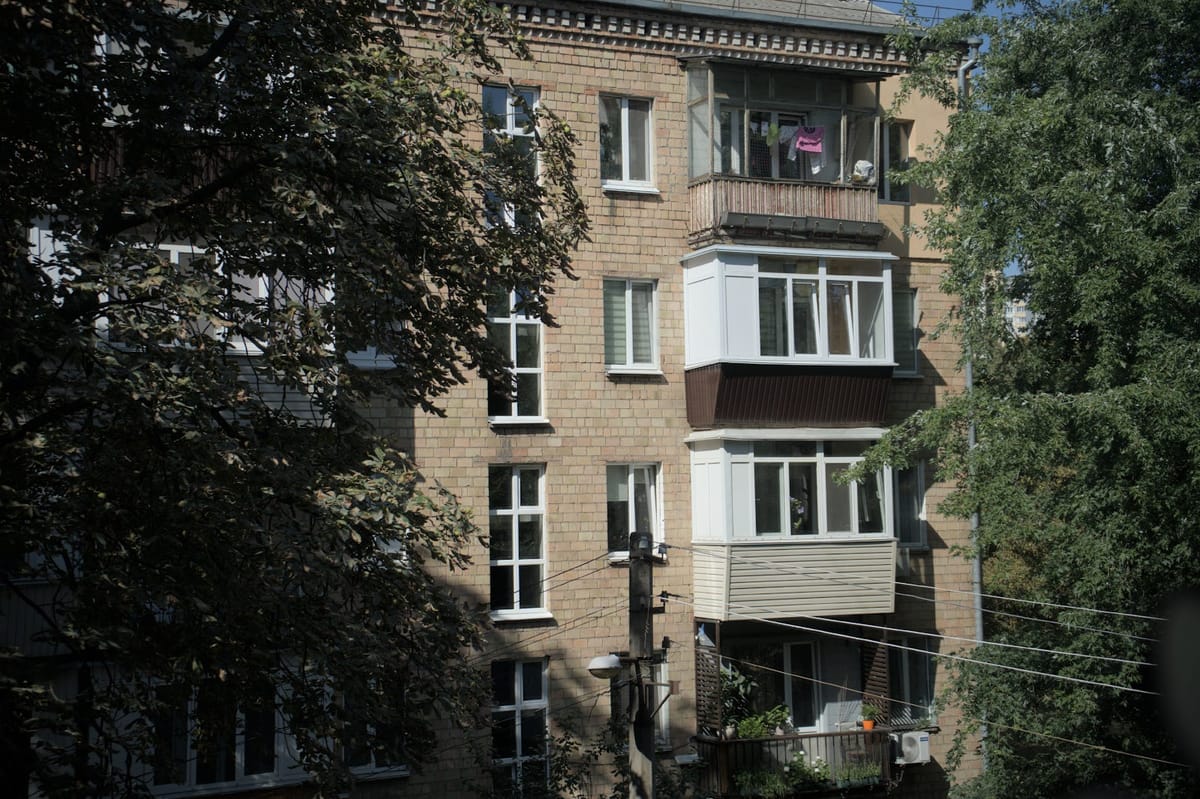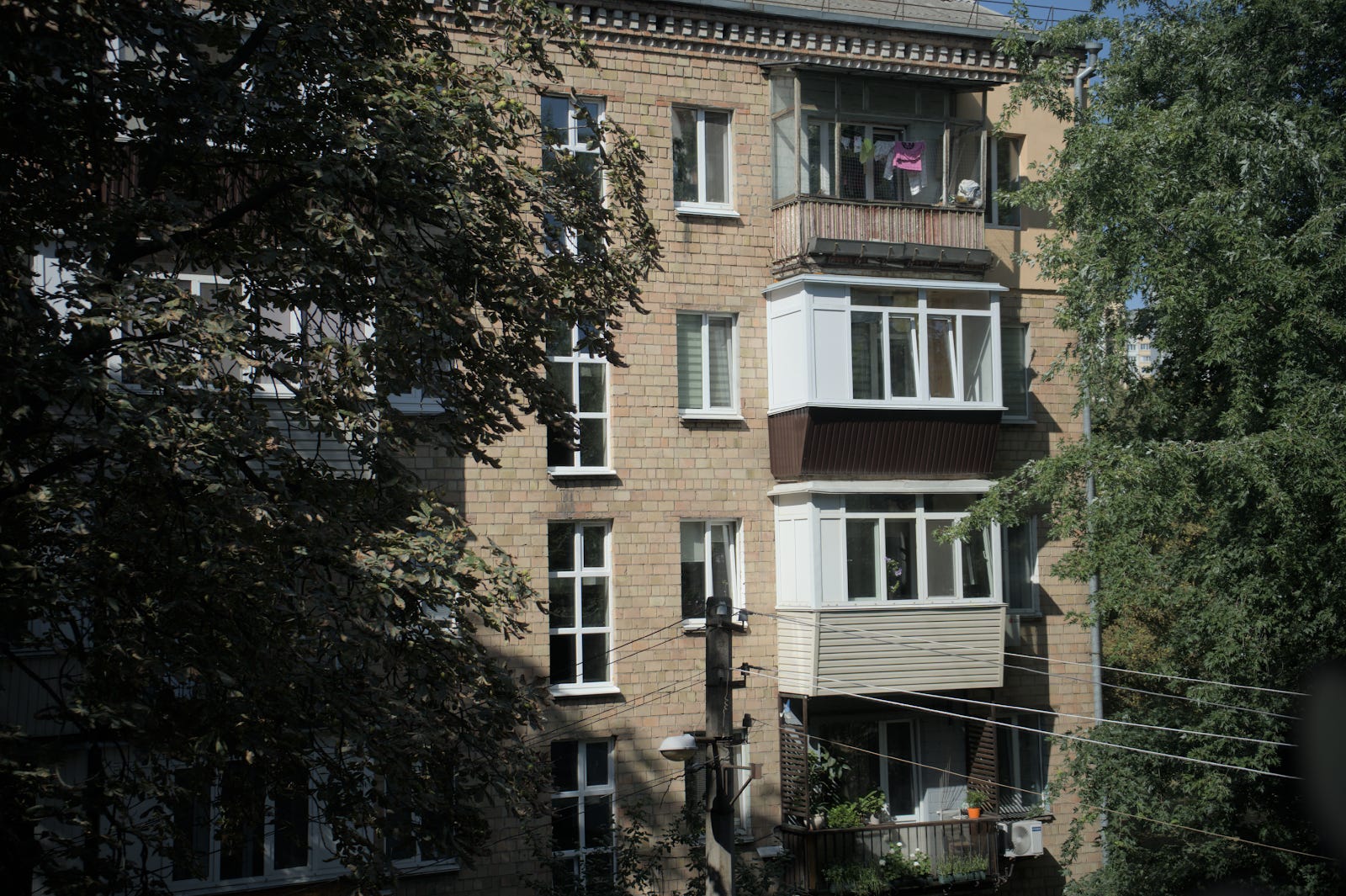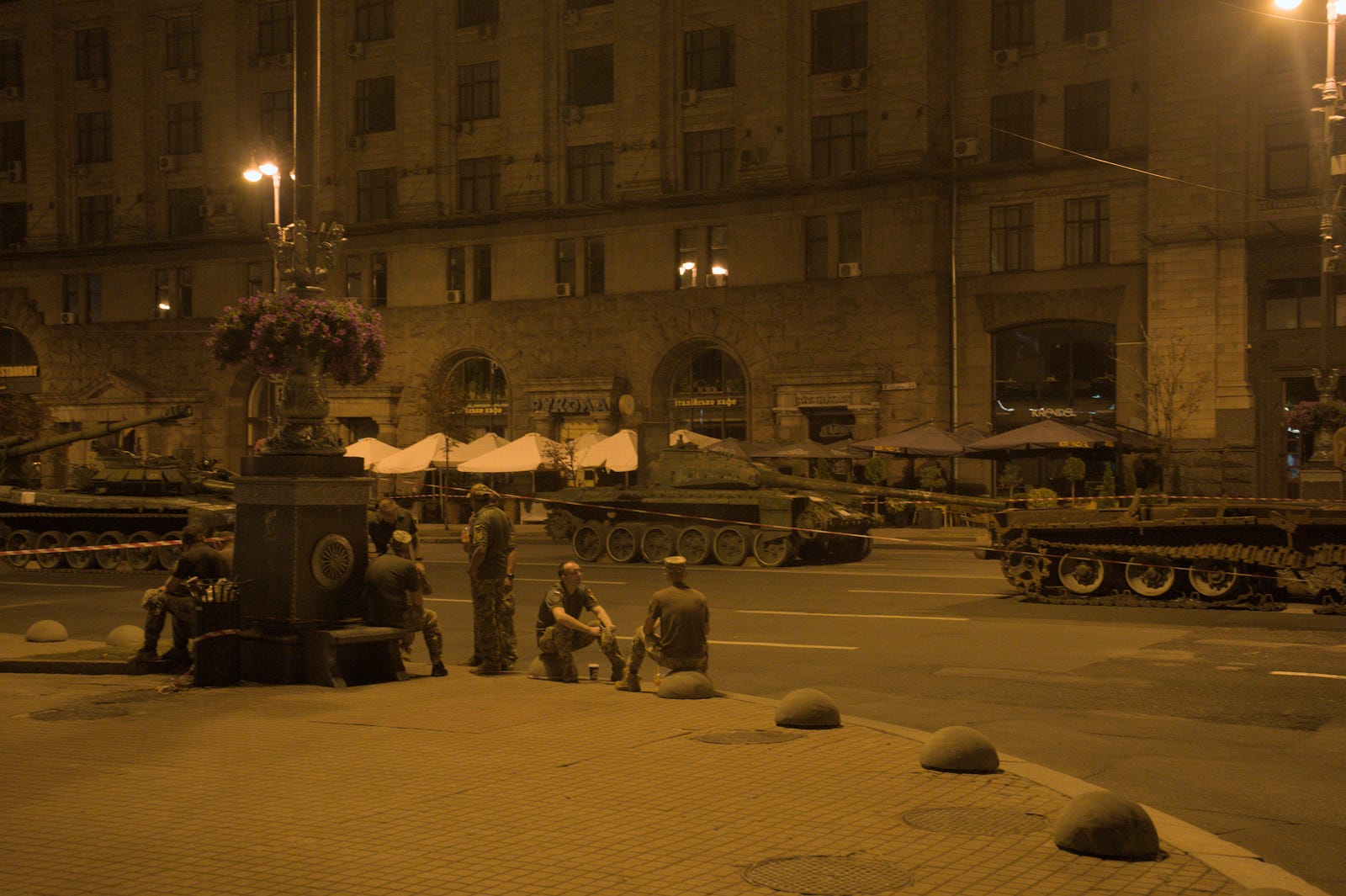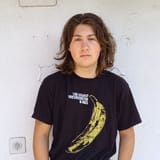Hello Kyiv
Arriving in Ukraine's capital

A little introduction: I'm a 19 year-old journo from Switzerland. I am currently in Kyiv, the capital of Ukraine, since a month ago. Over the next weeks, I’ll try to give you a look inside life and culture in the city during the war. Starting now, with a text about my first day here:
Serhii (17), my host, looks tired when he opens the door to their apartment in the Podilskyi district at seven in the morning. Clearly not his favorite time of the day. I am tired too: 36-hours-bus-ride tired. We sneak inside, trying not to wake up his partner Sofiia (21) and their guests, two friends from Lviv who are staying over. An hour later, I'm sitting in their kitchen with a group of Ukrainian counter-culture zoomers and a comically big pot of buckwheat. They tell me about the questionable nature of Kyiv tap water and rant about cringe mainstream pop-culture. There's this dog called Pes Patron. He finds mines and unexploded ordinance. And of course, in the age of social media he has become a mascot, received honorary medals and become recognized as AmbassaDOG by UNICEF. He now adorns overpriced shirts, and people are walking up to random dogs and calling them "Patron". Seems like people over 30 shouldn't have social media in wartime either.

Some hours later, we arrive at the center of Kyiv. They show me some of the city's biggest attractions. The golden roofs of the St. Sophia's Cathedral and the St. Michael's Monastery, the historic Maidan square, the Peoples' Friendship Arch which in 2014 had a crack painted onto it. I also get introduced to a coffee chain that is "famous for how bad the coffee is" and a "really corrupt court". On the main street, dozens of destroyed Russian tanks are lined up in an exhibition for the upcoming Independence Day, the 25th of August. Ukrainians stroll between them, enjoying the sun. Some are writing messages onto the tanks. Some are only blazing through on e-scooters, getting croissants, going about their day. Some are relaxing on a beach at the Dnipro river. A teenager asks me to light a cigarette he's hiding in his sleeve.
Looking around, there are reminders of the ongoing war. Discarded tank barriers, statues wrapped in protective concrete, wandering soldiers, an abundance of Call of Duty-looking military recruitment posters. And then the deep sound of the air alarm starts. A hodgepodge of telegram channels are announcing, that a Russian fighter jet has taken off and might or might not be carrying a missile and might or might not be heading to Kyiv. I look around. The amount of fucks given is close to zero, everybody goes on about their day. In Kyiv, people trust their air defense.
It's evening now. I'm sitting in the same kitchen as in the morning, talking to Serhii, who's set to start at university next semester, and Sofiia, who just finished their bachelors degree in journalism. Russian warlord Yevgeny Prigorzhin is reportedly dead. Nobody really believes it, nobody really cares either. Sofiia tells me about the beginning of the war. Of the three days when they weren't allowed to leave their house, because there were Russian soldiers in the city and the military was shooting on sight. Of winter in Kyiv. Months of almost no electricity. Of lighting with candles and an ever-present feeling of uncertainty. Sofiia's eyes are wet while talking about it.
I also learn about Serhii's story. He is originally from the city of Kramatorsk, in the eastern and war-torn region of Donetsk. He wanted to leave, but his family wouldn't allow it. They didn't want anything to do with the war and decided to stay where they are. He was sixteen then. After weeks of constant air-sirens, bombings and close calls, he decided to escape. On his second try, he succeeded, putting on as many layers of clothes as possible, throwing a small bag out of his window for a friend to catch and "going for a walk". Weeks later, the railway station he fled from was attacked with cluster bombs. Dozens died.
I also learn of a musician whose concert Sofiia attended a few years ago. They tell me he died. And of a volunteering friend of Serhii died too.
While broken streets are fixed and bombed buildings are renovated at astonishing speed, while shops and restaurants are operating close to normal again, deeper wounds remain. Almost every face seems to hide a story of loss and trauma. Almost every week, news and videos of new civilian casualties circulate. And yet, shortly thereafter, our conversation pivots to Ukrainian telegram stickers. The ones I understand are very funny. And absolutely not appropriate for this text. And so we laugh about dumb memes and Prigorzhin's fake passports. Despite the trauma of what lies in the past and the fear of what is to come, life goes on.

Thank you for reading my first post. This post is public so feel free to share it.
